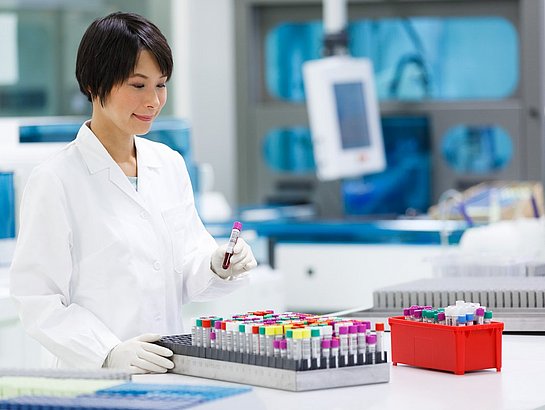Lab Directors are demanding more value from their suppliers
“There's a lot of pressure on all hospitals to stabilize the expense; our purchasing executives have a mandate to really reduce the amount of expenses,” says Robert E. Del Guidice, Clinical Administrative Director for Diagnostic Laboratory Services at a large US cancer centre.
Labs and phlebotomists have huge turnaround and throughput. And hospitals have no tolerance for a sub-standard product that may hinder any aspect of blood collection and sample analysis — they have adapted their way of working in the face of tremendous challenges and have a commitment to the highest standard of staff and patient care, comfort and safety.
Let us get an idea of the large volume and interactions that Robert’s teams and clinics deal with daily: Robert had earlier experiences with rigid vendors prior to the pandemic. “We tried a new style collection needle and my patients did not like the newer product so I told the sales rep: I really want to switch back to the older style, which was a very safe product.
You can't switch back.
What do you mean I can't switch back, yet you sell it?
Yeah, well, we do. But you can't switch back. You switched over.
The US is really trying to tighten their belt because of what they had to spend during a pandemic and prices have gone up so high as we’ve come out of these big waves of infection.” Large organizations have significant buying power. Robert continues: “So I said to the vendor: Well, if you won't sell me what I need, I will go to another company.”
Lab directors expect a fuller service offering from their supplier
Phlebotomists need a reliable supply of product, patients notice the difference when an inferior product is used and labs need to rely on consistent values being returned from sample analyses. Lab directors need a partner they can rely on who won’t leave them out of stock. But the service offering should not stop there.
Lab directors demand better communication around supply
Those hospitals and clinics that weathered the early days of the pandemic did so by stabilizing their supply. They found huge value in vendors offering relationships built on establishing a rapport and a clear, direct line of communication to lab directors. And, though the storm of the pandemic has now passed, lab directors continue to demand this level of service, finding it integral to the successful planning and coordination of functions in huge demand.
Discerning lab directors seek high quality product training
Hospitals need to train and retain their staff. And for large health centres, a lab director needs to coordinate fast, efficient training for rounds of new staff. Manufacturers that go above and beyond are favoured by lab directors, and present a solid purchasing strategy to the administration.
“I had to train 180 people. Greiner Bio-One actually sent me two product experts for a week to stay in town, who worked around the clock, training my staff hands on. I can't tell you what a good impression that left with me,” says Robert.
Faced with large customers buying power, manufactures must meet hospitals at cost and quality. Sustainable initiatives and efficiencies in production now conflate with the customer’s budget constraints. Manufacturers are working closely with their material suppliers and production arms to identify key efficiency areas.
A rigorous training program with supporting materials and reliable customer service as well as consistent product quality and cost: this is what hospitals expect. Manufacturers are really having to up their game if they are to deliver peace of mind to hospital administrations.

